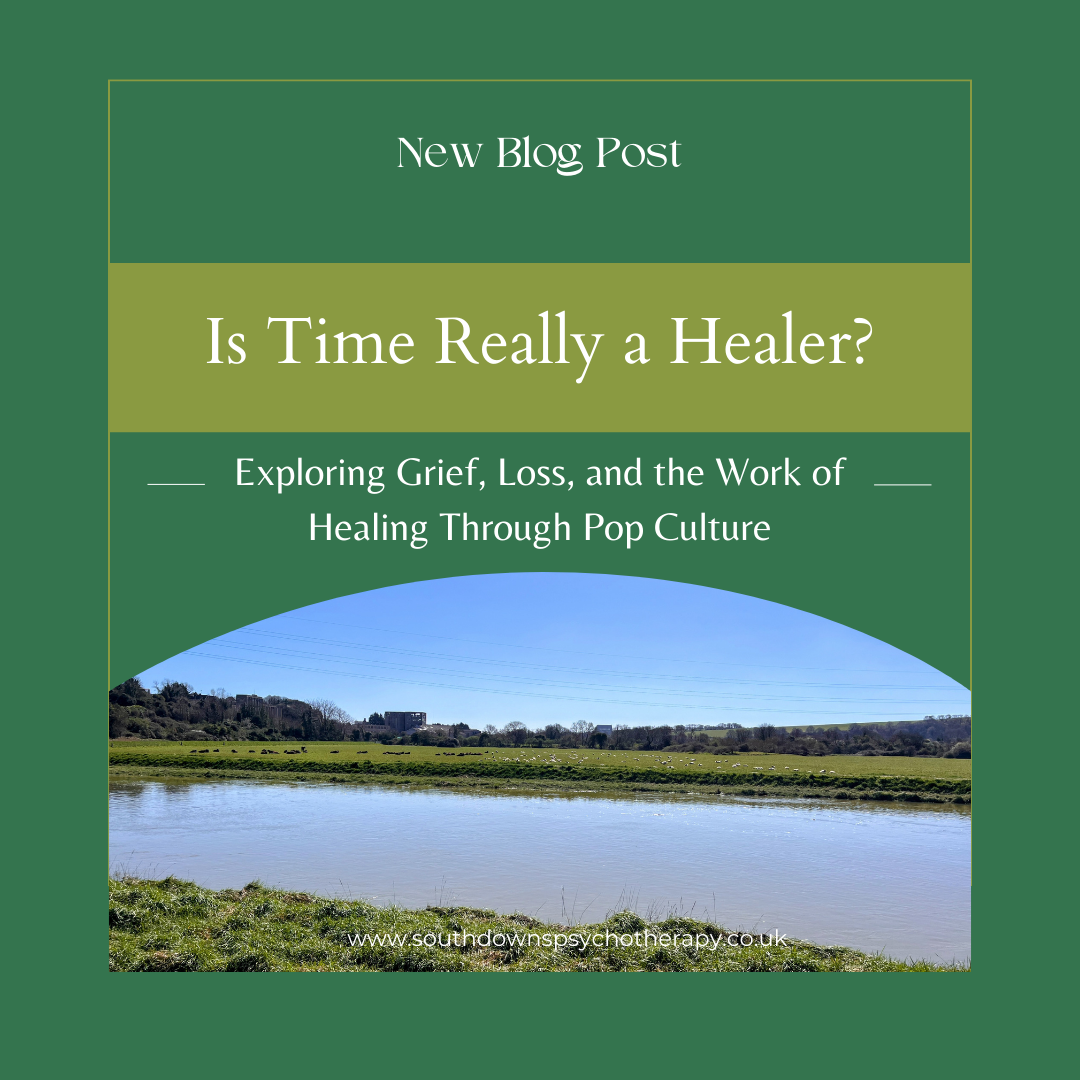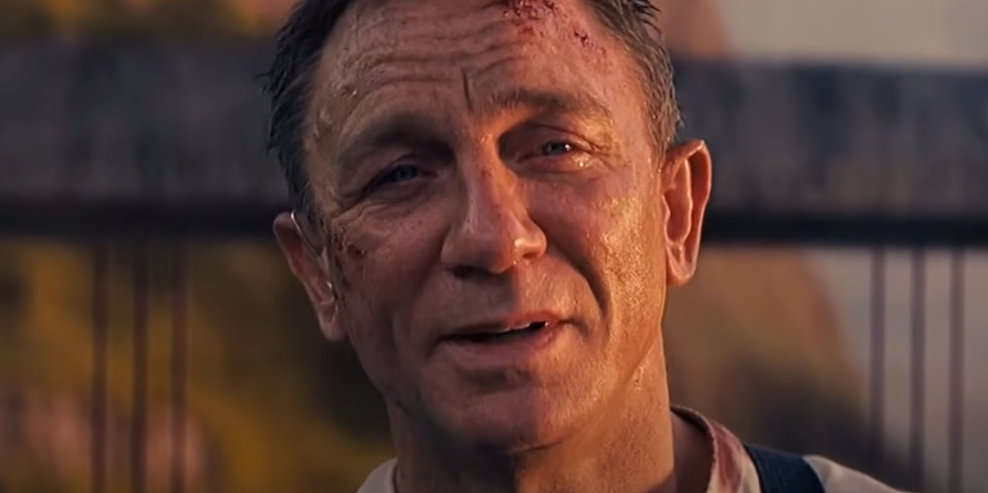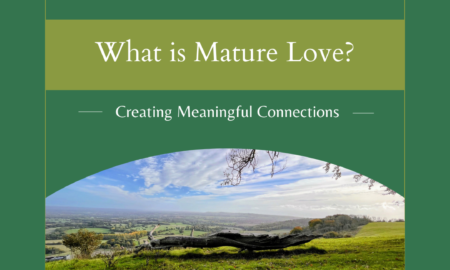Is Time Really a Healer?

Pop Culture and Loss
I recently finished the Netflix series One Day. (Spoiler alert—if you haven’t seen it yet, you might want to pause here and come back once you have.)
In the final episode, Emma appears to Dexter as if from beyond the grave, two years after her untimely death. Psychotherapeutically speaking, this could be seen as Dexter integrating Emma’s voice into his internal world. He imagines what she might say to him in that moment, drawing on her memory as a source of comfort and wisdom.

Their imagined exchange is brief but powerful:
Emma “It won’t always be like this”
Dexter “Why wouldn’t it? What’s going to change it?”
Emma “Time” (chuckles sadly)
Dexter “Time… No, that’s… that’s….I can really feel the clouds parting Em”
Emma “Yeah you’re funny”
The Panacea of Time
Dexter still finds it hard to believe that time alone can heal the depth of his pain. And yet, the scene reminds us of how grief can evolve. Time doesn’t erase pain—but it often softens its sharpest edges. Whether it’s the end of a relationship, the death of a loved one, or the loss of a life we thought we’d live, grief is a process that unfolds slowly.
Too Little, Too Late
Despite the tragedy of Emma’s death, the episode ends on a bittersweet, hopeful note. Emma’s essence lives on in Dexter, and there’s a sense that, eventually, he’ll find a way forward. Still, it’s hard not to feel the weight of his late realisation—that Emma was the one—and the sadness that this realisation has come only after it’s too late.
This theme of confronting irreversible truths appears again in the final scenes of No Time To Die. James Bond, having secured the safety of his partner Madeleine and her daughter, realises he cannot leave the island because he has been infected with a bioweapon engineered to kill them. In his final moments, before the island is obliterated by rocket launchers, Bond learns that the child is his daughter. The depth of what he’s missed – and is about to miss – lands heavily. As Louis Armstrong’s All the Time in the World plays, we’re left to reflect on the love that came too late, and the life that could have been.

Do We Always Have to Wait?
These stories raise a painful but important question: must we wait for a final moment – a dramatic realisation or deathbed confession – before we truly appreciate what we have or what we’ve lost?
Hindsight is powerful. With time and maturity, we can look back on situations with more clarity. But sometimes, we already have the insight – we just don’t act on it. And when we don’t, we’re left wondering: does time also heal the regret of what we could have done sooner?
The Work of Healing
This brings us back to the phrase we’ve all heard countless times: “Time heals all wounds.” But does it?
Time certainly passes. Days become weeks, weeks become months. The world keeps turning. And yes, often what once felt unbearably raw becomes more manageable. But to credit time alone for this shift is to overlook the effort that healing demands.
In truth, time creates space. What we do with that space is what matters.
Grief, heartbreak, betrayal, and shame don’t vanish just because the calendar moves on. Left unprocessed, they can become entangled with other emotions – resentment, mistrust, numbness. Healing is not something time does to us. It’s something we engage with actively.
It might begin through quiet reflection, journalling, or talking with someone you trust. It might involve therapy – where feelings can be explored gently and safely. If you anticipate this is where you can heal, get in touch. Healing asks us to be brave enough to feel, to make sense of our pain, and to offer ourselves compassion in the process.
So, is time a healer? Perhaps partially. Emma isn’t entirely wrong. But ultimately, you are the healer. Time simply gives you the opportunity.
And that opportunity, when used with intention, can change everything.
You may also be interested in...

What is Mature Love?
Creating Meaningful Connections Mature love, what is it? I’m not talking about being 80 years old and holding hands on a walk through the park here. I am talking about…

What Do We Mean by ‘The Self’ in Psychotherapy?
Understanding the Concept of the Self The concept of "the self" is central to psychotherapy, yet it can feel elusive and abstract. As therapists, we often talk about self-awareness, self-development,…

Your Life Story
Your Life Story One of the core theories of Transactional Analysis is the notion of a life script. Put simply, a life script is a pre-conscious life plan that determines…

Improve Your Mental Strength
Ever wondered why some people seem to bounce back effortlessly from life's curveballs while others struggle to regain their footing? The secret lies in mental strength – that intangible power…

The Early Clues To Adult Personality
As new parents we strive to see early clues in our baby's temperament to see if we're able to guess what they may be like as adults. But how far…

Navigating Couples Therapy When Your Partner Isn’t on the Same Page
Deciding to seek couples psychotherapy can be a significant step toward improving your relationship. When you opt for the modality of Transactional Analysis (TA), it demonstrates your commitment to understanding…
Ready to Make a Change? Book an Initial Consultation Today
If you have any questions at all about therapy or would like to make an appointment, get in touch. I will usually be able to respond to you within 24 hours.
